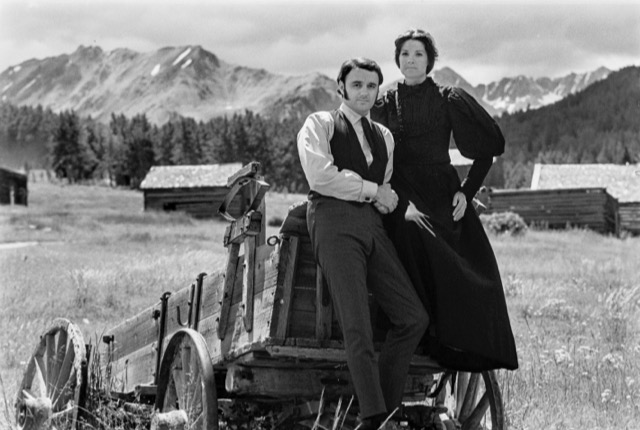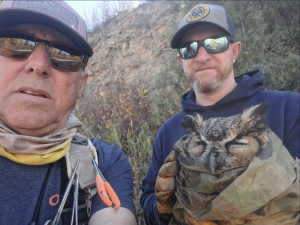Willoughby: Pat and Victoria Garvey — songs about Aspen

Aspen Historical Society/Hiser Collection
The contrast between the music entertainer business in the late 1960s and today is most evident with the example of Pat and Victoria Garvey who entertained in and, for a period, made Aspen their home. Many folk musicians toured the country going from nightclub to nightclub, recorded records, and eked out a living. They often, as in this case, were standards at the nightclubs that booked them, and they stayed for months. Pat and Victoria spent months in Los Angeles and in Las Vegas, but Aspen was a favorite.
The Aspen Times Weekly — The Night Club Beat — described them this way: “They write their own songs, and the songs they sing speak of love and ghost gowns and working in the mines or about people who have done them wrong. They are fresh and talented and the closest we have to real American troubadours.” Victoria’s exciting and beautiful voice was often cited in reviews.
Three different local clubs featured them in the years they played Aspen, 1965-1968, including Jake’s Abbey (a basement club on Galena), the Woodlander downtown on Hyman, and at the Jerome in what, for a while, was called, The Paper Stagecoach. The town was rich in music then, with a variety of offerings. In 1965, they competed for customers with jazz musician Cal Tjader at the Red Onion and rock in the basement of the Elks Building, Galena Street East, featuring groups like locals favorites The Daniels and King Louie and the Laymen.
Pat and Victoria wrote many songs. One, “The Lovin’ of the Game,” was recorded by Steve Goodman. A local favorite (one of mine) was “Fugacity” (written as Sugasity in some listings). Lyrics include: “today is the first day of the rest of my life, I wake as a child to see the world begin on monarch wings and birthday wonderings.” Another stanza that means more to me now then then, “To grow is to change, to change is to be new,
To be new is to be young again, I barely remember when.”
The Garvey’s were often quoted saying that Aspen and the surrounding ghost towns inspired some of their songs. They also used old Aspen Times editions for ideas. It was there they came across an 1881 article with a great plot. The story told the gruesome tale of a thirteen-year-old girl, Alpheretta Ray, living in Nederland, a small town near Boulder. She was living with Mrs. Nettie Still. A male caller came and took “Alphie” to an event. Still quickly dressed in male clothing and followed her, then returned home. When the girl got back, Still went into a tirade, not understood by the girl, and shot her three times. Still’s husband discovered the victim and called in doctors and the police. The girl told her story but died during the night.
Victoria’s lyrics, “it was a time of deadly passion done by Nettie Still, Colorado has forgotten, but I think I never will.”
They took up residence in the summer of 1967, and as a sideline to their music, they started the Solid Muldoon, a weekly literary magazine. In addition to Victoria’s writing, it printed works submitted by locals. They advertised it as “a literary potpourri appearing hither and yon every Monday.”
Later, they split up. Victoria died in 2014 and Pat in 2017, but their music lives on.
During those Aspen years, they produced two albums. As a sidenote, longtime local Bruce Berger, major chronicler of the Aspen Music Festival and author himself, was a piano accompanist for them in 1968.
Tim Willoughby’s family story parallels Aspen’s. He began sharing folklore while teaching at Aspen Country Day School and Colorado Mountain College. Now a tourist in his native town, he views it with historical perspective. Reach him at redmtn2@comcast.net.




